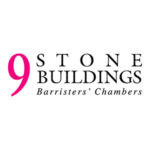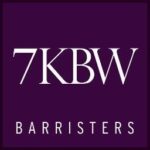Richard Dew and James Egan give an analysis of the current status of the doctrine of illegality and trusts ‘There are two categories of conduct that count for the purposes of the doctrine of illegality: first, criminal acts; and second, quasi-criminal acts which engage the public interest in some way (such as cases involving dishonesty …
Continue reading "Trusts: It will be alright on the Knight"
This post is only available to members.
Peter Shaw QC explores the principles of ascertainment of beneficial ownership in a property purchase tainted with illegality ‘Having found that Mr and Mrs Kliers were the true beneficial owners, it would perpetuate the fraud to leave the property in Mr Schmerler’s ownership (without making a declaration of beneficial ownership). The illegal activities were required …
Continue reading "Beneficial ownership: Honesty is the best policy"
This post is only available to members.
James Goudkamp explores whether the Supreme Court’s policy-based approach to the illegality doctrine will be followed in tort cases ‘An important question that arises, and one that was not answered by the Supreme Court, is whether Patel applies beyond the field of unjust enrichment.’ The Supreme Court recently handed down judgment in the appeal in …
Continue reading "Illegality: Does Patel v Mirza apply in tort?"
This post is only available to members.
Patel v Mirza [2016] establishes a flexible approach towards the illegality defence. Gareth Keillor and Rosanna Pinker analyse the pros and cons ‘A flexible approach, which disposes of the automatic bar to relief if the claimant has relied on their own illegality, will provide new opportunities for claimants involved in illegality successfully to lodge claims.’ …
Continue reading "Illegality And Trusts: The straight and narrow?"
This post is only available to members.
Tom Henderson reports on a recent Supreme Court decision reformulating the test for when a claim will fail due to illegality ‘The Supreme Court found that, under this new approach, a claimant will not ordinarily be debarred from enforcing a claim for unjust enrichment simply because the money they seek to recover was paid for …
Continue reading "Practice: The long arm of the law"
This post is only available to members.
Gareth Keillor and Rosanna Pinker consider the lack of clarification from the Supreme Court on the illegality defence ‘The mere existence of illegal activity will not be enough to defeat a claim; there must be a sufficiently close connection between that unlawful activity and the claimant’s pleaded case.’ The application of the illegality defence, otherwise …
Continue reading "Illegality And Trusts: Public policy or rule of law?"
This post is only available to members.
Wills & Trusts Law Reports | March 2016 #157This appeal concerned a dispute over the beneficial ownership of the property whose legal title was at all times held by the appellant alone. At trial, the judge made the following findings:
- (i) A former property had been purchased in the joint names of the respondent and appellant in 1987.
- (ii) In 1991 the legal estate in that property was transferred into the sole name of the appellant to allow her to claim benefits as though she was a single woman living alone. The outstanding mortgage on that property at the time was converted to an endowment secured by a policy...
Sukhninder Panesar examines a case where one of the beneficiaries to a common intention constructive trust of land had been involved in an illegal purpose ‘O’Kelly provides an excellent example of when a constructive trust will be imposed in cases where the legal title is taken in the sole name of one of the cohabiting …
Continue reading "Common Intention Constructive Trusts: The role of illegality"
This post is only available to members.
Wills & Trusts Law Reports | December 2014 #145The claimant Arthur Watts (Arthur) sued his brother James Watts (James) in respect of trust transactions in 1998.
In 1967 Geoffrey Watts, the father of Arthur and James, made a settlement in favour of his children and grandchildren. In 1976 this trust fund was split into separate trust funds for each of Geoffrey’s children. James was one of the trustees of Arthur’s trust fund. The main beneficiaries were Arthur in his lifetime and thereafter his legitimate children. Clause 4 allowed the trustees to pay all the capital to Arthur if they considered it to be to his advantage...
Wills & Trusts Law Reports | November 2014 #144The appellant was a property dealer and the respondent was a foreign exchange broker, who had a personal spread-betting account with IG Index. In August 2009, a third party informed the appellant of a deal offered by the respondent that involved a bet on the movement in the value of shares in Royal Bank of Scotland (RBS). The defendant claimed to know people who sat in on meetings between the heads of RBS and officials from the government, and it was expected the Chancellor would make a public statement which would have an effect on the share price of RBS. Following an initial telephone ...







